Bright orange bikes help women break barriers in Iran
TEHRAN, Iran -- Sara Alirezaei was riding a bright orange bike along one of Tehran's main, tree-lined boulevards when a male flower seller noticed her labored breathing and offered a word of encouragement: "Don't be scared. Biking is easy," he called out.
The image of a woman on a bicycle along a busy road in Iran's capital could become far more common with the launch of Bdood, the first private bike-share company that rents its signature clunky, orange bikes to both men and women. An earlier bike-share initiative was run by the city government and was available only to men.
Alirezaei, a 27-year-old Iranian who develops game apps for phones, enjoyed cycling as a girl, she said. But after she turned nine -- the coming of age for Muslim girls in Iran -- she dropped the hobby. Now that she has taken it up again, she explained that she was woefully out of practice.
"I was stressed and excited" to take a Bdood bike for a ride, she said. "The last time I had ridden was about 17 years ago."
Since Iran's 1979 Islamic revolution, the country has lived under Islamic guidelines that, among other things, govern what women wear and how they behave in public. Women were barred from many activities outside the home, including events at stadiums and singing.
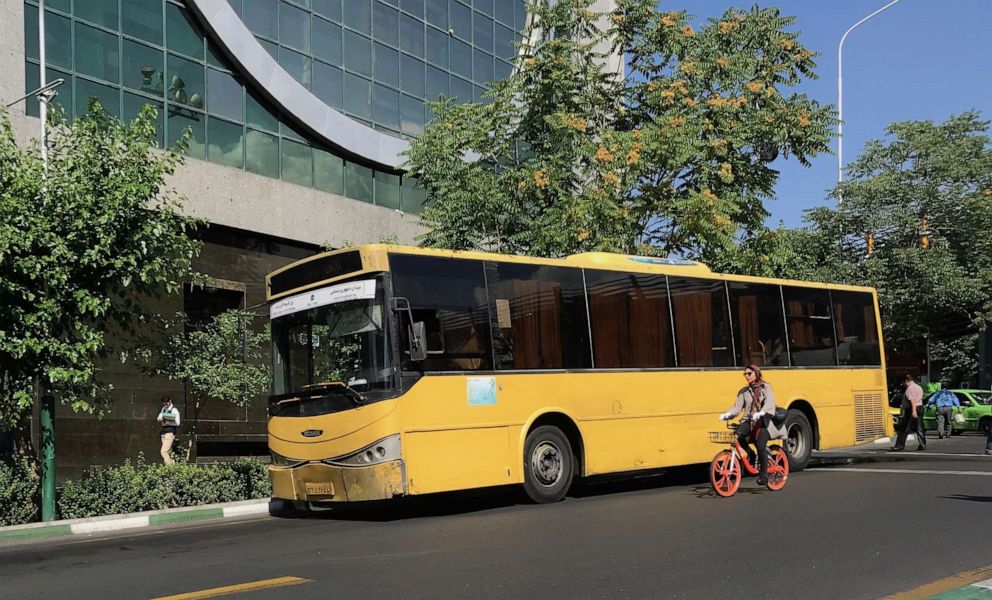
But as reform-minded women and politicians have looked for ways to push back against the government restrictive guidelines, change has come, even if very gradually. The long black veil that nearly every woman wore in the early years after the revolution has slowly given way to colorful blouses, worn long and loose over long pants or long skirts.
Similarly, the shifting view on bikes -- and Bdood's inclusion of women -- has come quietly. Its proponents note that the victory could be fleeting.
"To make changes, sometimes we campaign to let the policymakers hear us or to increase awareness. But sometimes, we just keep doing what we want without shouting it out, and it slowly leave conservatives no way but to accept us," said Niloofar Hamedi, 26, an Iranian journalist who covers women's issues and women's athletics.
Until recently, cycling on Tehran's bumpy streets was reserved almost exclusively for men. In 2016, Iran's Supreme Leader Ayatollah Ali Khameni issued an official position on the subject. "Women biking in public areas and where they might be seen by unrelated men is 'haram' (religiously forbidden)," he ruled, according to his official government website.
But others, notably the current mayor of Tehran, have encouraged the idea as a way to help reduce the city's chronic congestion.
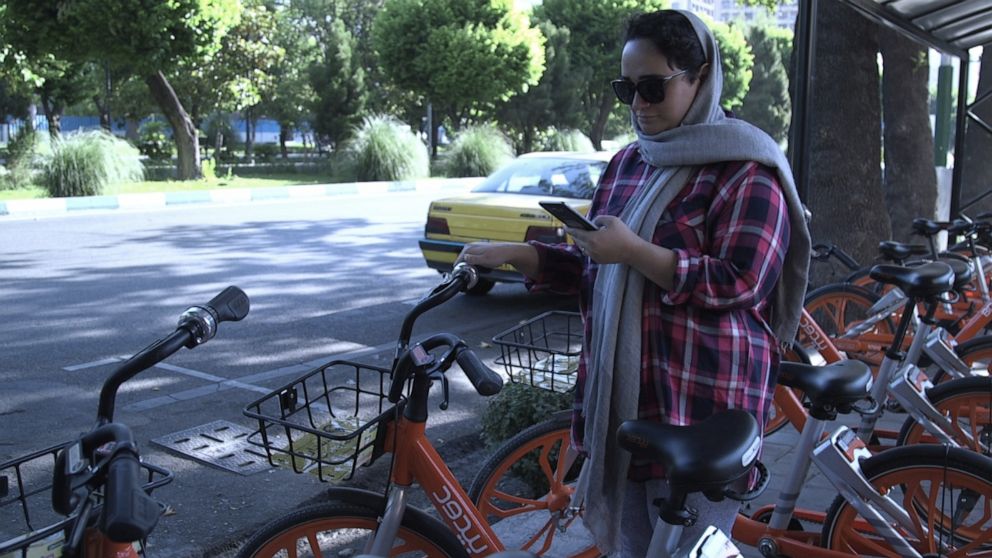
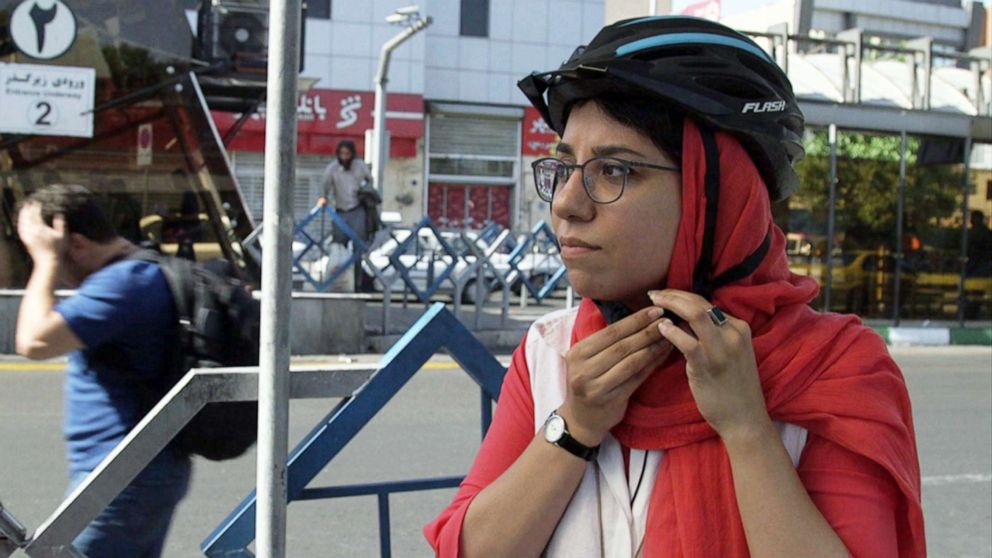
Bike shares have exploded in popularity in recent years in cities around the world, which advocates say can help reduce the number of vehicles on the road and encourage exercise and reduce stress.
"The idea of women biking is as much a gender issue as it is an environmental one," Hamedi said.
Bdood, which is a private company, rents bikes for about 10 cents per half an hour, which women say is considered affordable. The company's presence has encouraged biking more broadly.
"I used to bike with my husband outside of Tehran, but, recently, seeing women riding the orange Bdood bikes, I am thinking of riding by myself in the city," said Saba Javid, 28, a marketing content developer.
She said she mostly rides on the weekends for fun. "It helps me feel safer when there are more women riding bikes on the street," she added.
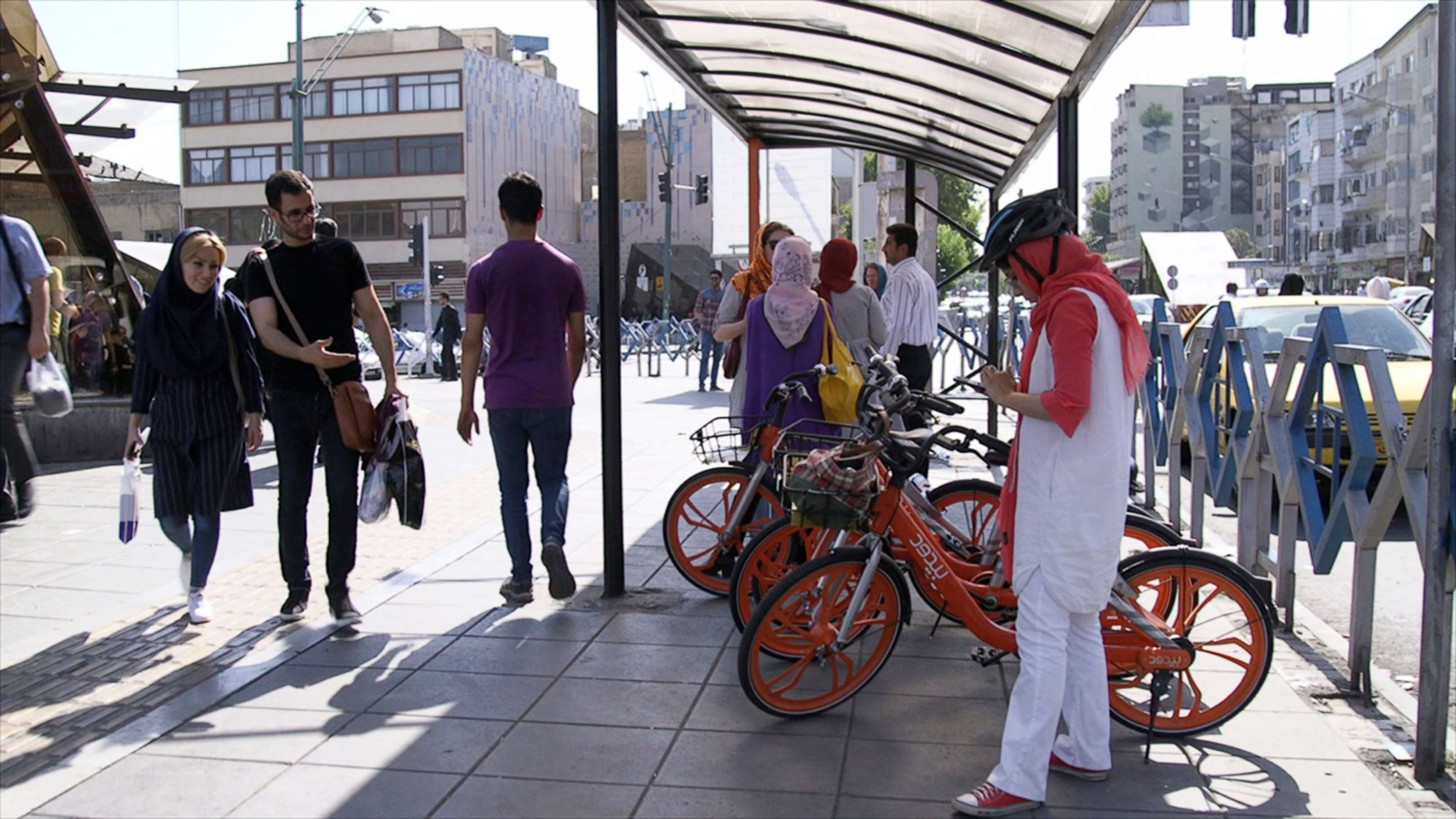
There are also challenges.
Mahsa Hosein, who is 27 and works as a journalist, wears headphones in one ear when she rides, in order to block out the comments that male drivers and passerby shout out at her.
"They would mock me, or discourage me with loud laughter," she said.
She can't block the heckling out altogether though because, she said, she needs to be aware to safely navigate Tehran's streets.
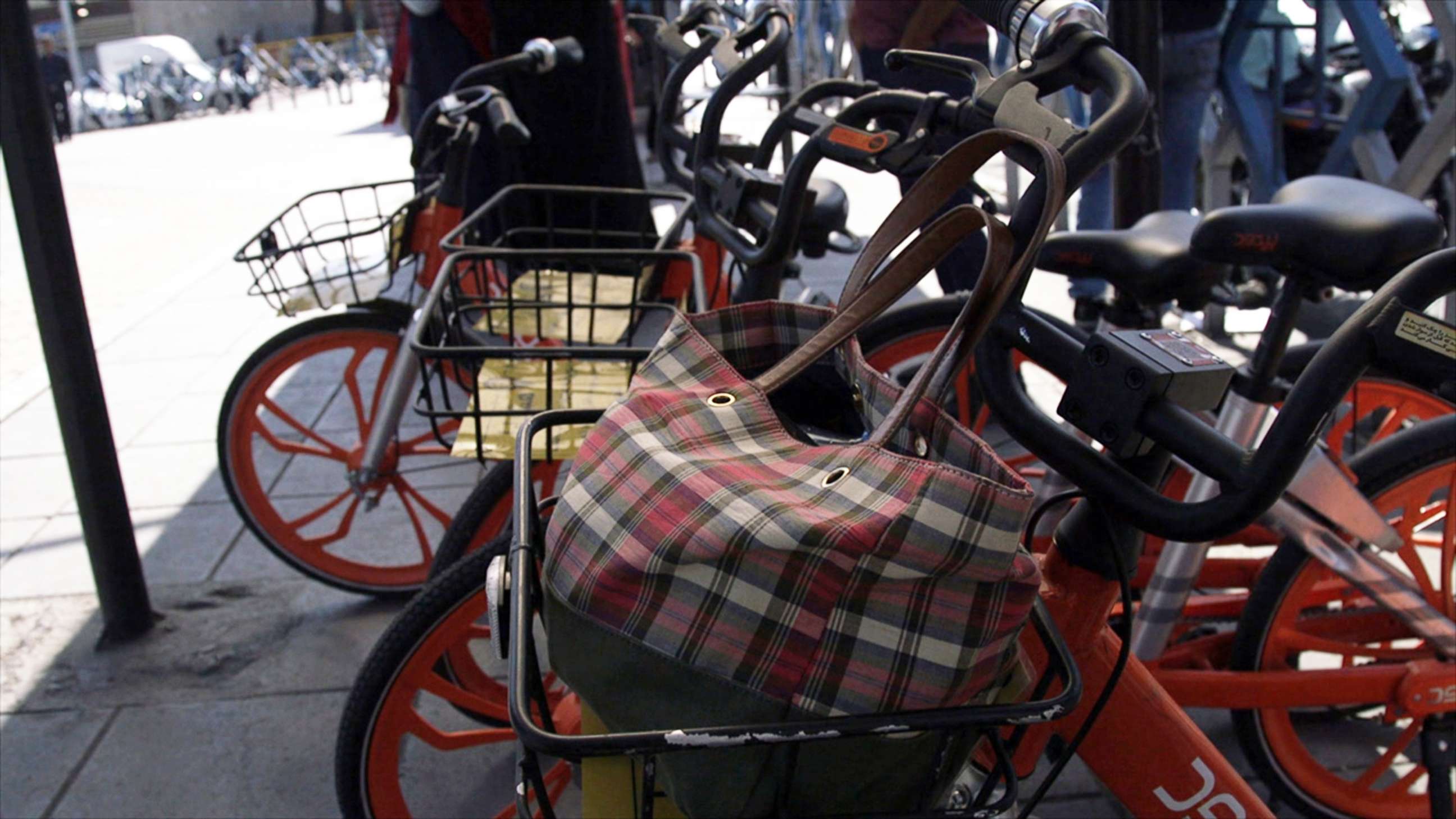
It's not clear that the rest of Iran is ready to follow Tehran's lead.
In May, the local prosecutor in the historical city of Isfahan banned women from biking because the activity had led to "harassment." The prosecutor ordered police to issue warnings to women bikers and seize their ID cards. He told the Islamic Republic News Agency that if women are found to be biking after receiving a warning, then "they must be confronted based on the Islamic regulations."
Women in Isfahan responded by posting photos of themselves riding bikes on social media.




